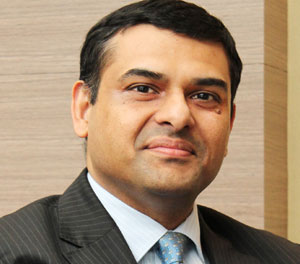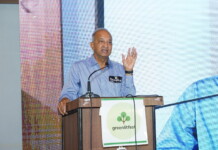The TATA Group is India’s largest conglomerate and is also the most trusted brand. Usually they don’t go together. A lot has been spoken and written about the legacy of the TATA leaders and about the crucial factors that have contributed to where the group is today. Yet, when the group’s Chief Ethics Officer, its Spokesperson and Brand Custodian speaks there’s something new to learn or a few ideas are refreshed. That’s what Mukund Rajan did recently at The Centre for Corporate Governance and Citizenship (CCGC), Indian Institute of Management, Bangalore. He shared some key elements in the TATA Groups’ journey of building sustainable and successful global enterprise. Edited Excerpts:
The most important factor that governs Organisational Sustainability is a well-defined sense of mission and purpose. A clear sense of who we are and why we exist – this defines the organisational culture, greatly influences the people practices of the organisation which in turn influences behaviour of colleagues and the performance of the organisation. In case of the TATA Group, our commitment to giving back to the society really underlines our mission and purpose.
It started with our founder, Jamsetji Tata whose business philosophy reflected in this statement – Community is not just a stakeholder in business but in fact is its very purpose of existence.
Corporates have the responsibility to concern themselves with the quality of life in the community they serve. If the community is not successful, if the customer, the supplier, the investors, the lenders in that community are not successful, it’s hardly likely the corporate that serves the community is even going to survive.
This inclusive vision of community and responsibility of corporates found its realisation amongst many other manifestations. For e.g., the way in which the city of Jamshedpur itself is build – wide streets, trees for shade, large areas for parks and gardens, large areas reserved for football, hockey and earmarked areas for temples, mosques and churches.
This notion of corporate responsibility soon morphed into trusteeship model of ownership under Jamsetji’s two sons. Both his sons bequeathed their holdings in TATAs to charities. This conscious action was inspired by founders’ own view of the role business should play in the community. Gifting of ownership to charities is now a firmly embedded notion of giving back to society within TATA’s corporate structure and DNA.
The TATA Trust gives around 100 million dollars to charity every year.
Principle Tools
Tata Code of Conduct – These are guidelines for ethical conduct which reinforce the value system which has endured since the group was founded. They are periodically revised and all violations are appropriately penalised in an open manner.
Tata Business Excellence Model – Allows benchmarking of all TATA companies with their global peers with sharing of best practises across group companies and has in fact resulted in improved competitiveness of the TATA companies.
On-going Initiatives
Tata Engage – Volunteering activities for the employees – aims at connecting them with the community.
Employees can personally experience the joy of giving back to society.
70,000 TATA employees signed up and have put in 4,00,000 volunteering hours till date.
Tata Strive – Skills development program. An effort to train young people for employment entrepreneurship and community enterprise
A network of skill development centres to be developed including captive centres in company, govt centres like ITI and non-profit.
Cause-based marketing – Based on the philosophy that if businesses are willing to clarify the higher purpose they serve, customers are also willing to reward them with both mind-share and share of quantity.
For example, Power of 49 – Jaago Re – encouraged Indian women to make independent and informed votes. Along with achieving business goals, a strong emotional connect was created. The last general election had the largest percentage of Indian women voting.
Recognition and Awards – Awards are designed to encourage innovation and pioneering in the group. The company recognises that innovation and pioneering entails effort and risk and frequent disappointment.
“These initiatives are examples of the way in which at the TATA Group, we ensure that our sense of mission and purpose constantly feeds into the way we engage with a variety of stake holders.
Also it informs and guides our human relations and the way we engage with people and that inclusiveness led to a number of pioneering initiatives like the 8-hour work day, maternity benefits and crèche.”
Gender Equality and Diversity Initiatives
We are committed to doubling the number of women in our workforce by 2020. Also, we aim to have 1000 women CEOs, CXOs and leaders across our businesses.
Mr. Rajan concluded his talk with an example of how alignment of mission and purpose at TATAs creates a sense of higher purpose. “In the 26/11 terror attacks at Taj Hotel, Mumbai, none of the 600 staff members left or tried to escape even though they had the opportunity to do so. All of them stayed back to help the guests and ensure their safety.”










